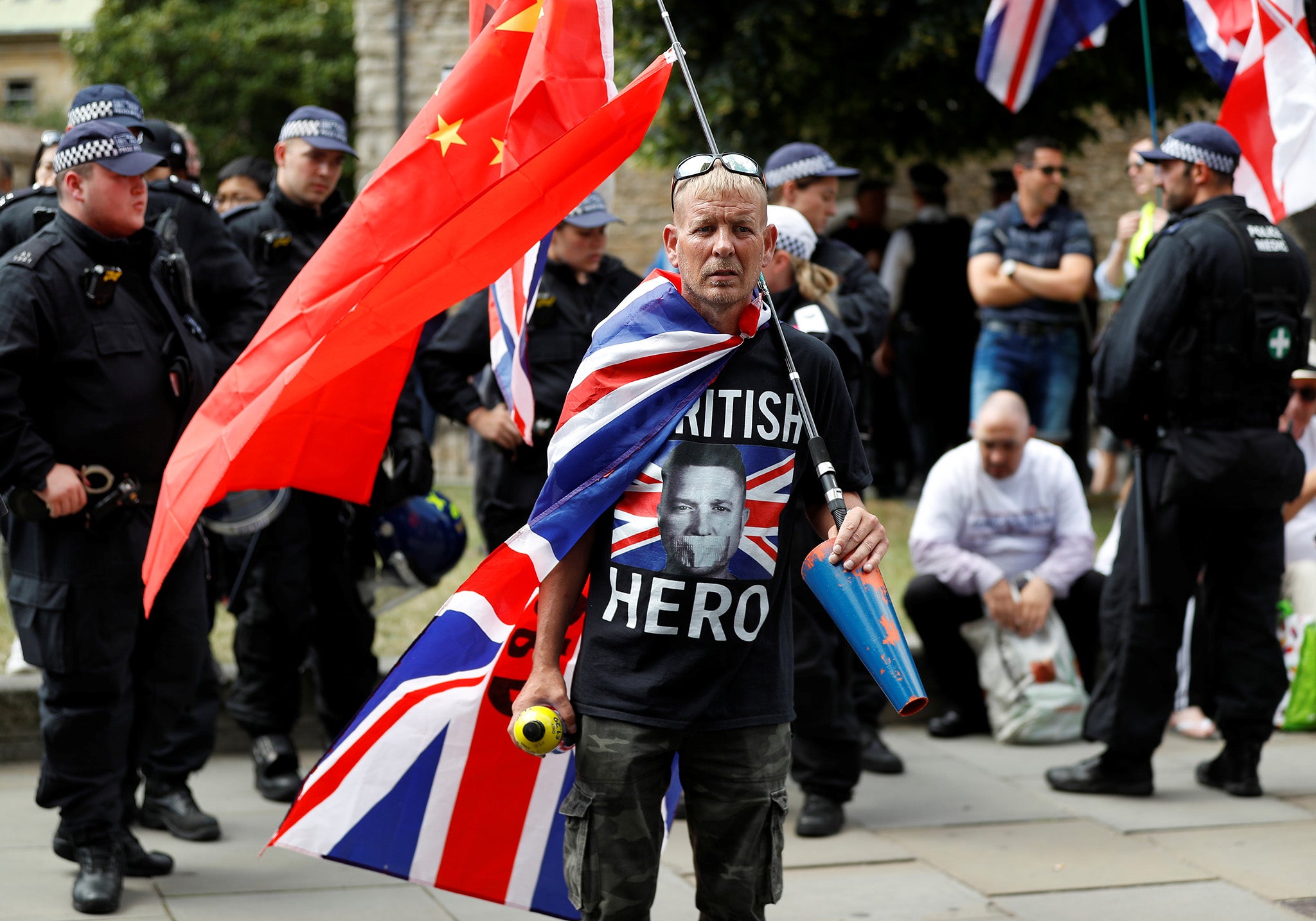Would banning far-right ‘hate groups’ help combat extremism?
Analysis: The current approach to extremist groups is incoherent, but a crackdown could drive support to their causes

A new call for a list of “designated hate groups” that would be banned from making high-profile media appearances is likely to be a controversial one.
Report authors at the Tony Blair Institute argue that the move is necessary to address the link between extremism and terrorism.
They cite the example of Generation Identity, a movement that claims to be non-violent but calls for Europe-wide “remigration” to “preserve our ethno-cultural identity”.
The group’s core theory was cited by the Christchurch attacker as his key motivation, and was used as the title for a manifesto that went on to inspire other terrorists.
But directly after 51 Muslim worshippers were massacred in March, Generation Identity’s UK leader was given an interview slot by the BBC.
The Christchurch attack and the massacres in Poway and El Paso have sparked renewed debate about how to combat far-right extremism, following years of focus on the Islamist threat.
Many governments, including the UK, have exerted pressure on social media companies to remove groups and high-profile figures.
But the approach has meant extremists simply continue their offline activity unhindered and on less regulated online platforms.
Authorities’ understanding of the signs of far-right extremism lag far behind that of Islamists, with two alleged members of Generation Identity reportedly allowed to serve in the royal navy.
Proponents of a “hate groups” list argue that it would provide a common reference point and lead to a more coherent approach to combating types of extremism that are not covered by current terror laws.
But far-right activists have already become adept at characterising any action or criticism against them as a crackdown on “freedom of speech”.
Many use efforts by the government, law enforcement and social media companies to gain support, by weaving them into narratives claiming that “elites” are conspiring to suppress the ideas they espouse.
They characterise any refusal to air or debate their views as a signal that the “establishment” has already lost the argument, and is protecting itself.
The English Defence League (EDL) founder Tommy Robinson enjoyed an unprecedented spike in international support – and financial donations – after being jailed for contempt of court last year.
He had endangered a grooming trial, but successfully presented himself as a “journalist” punished for reporting the truth.
Robinson would be among those using the proposed ban on hate groups as proof of a long-standing narrative of a “politically correct” crackdown on the white working class.
The government and security services are in an unenviable position. The current freedom the supposedly non-violent far right enjoys to spread its views has resulted in a dangerous increase in extremism and massacres seen in Christchurch and elsewhere.
But imposing laws of the kind proposed by the Tony Blair Institute would generate fresh international media coverage, and fuel grievances that could attract new followers to banned groups.
Join our commenting forum
Join thought-provoking conversations, follow other Independent readers and see their replies
Comments